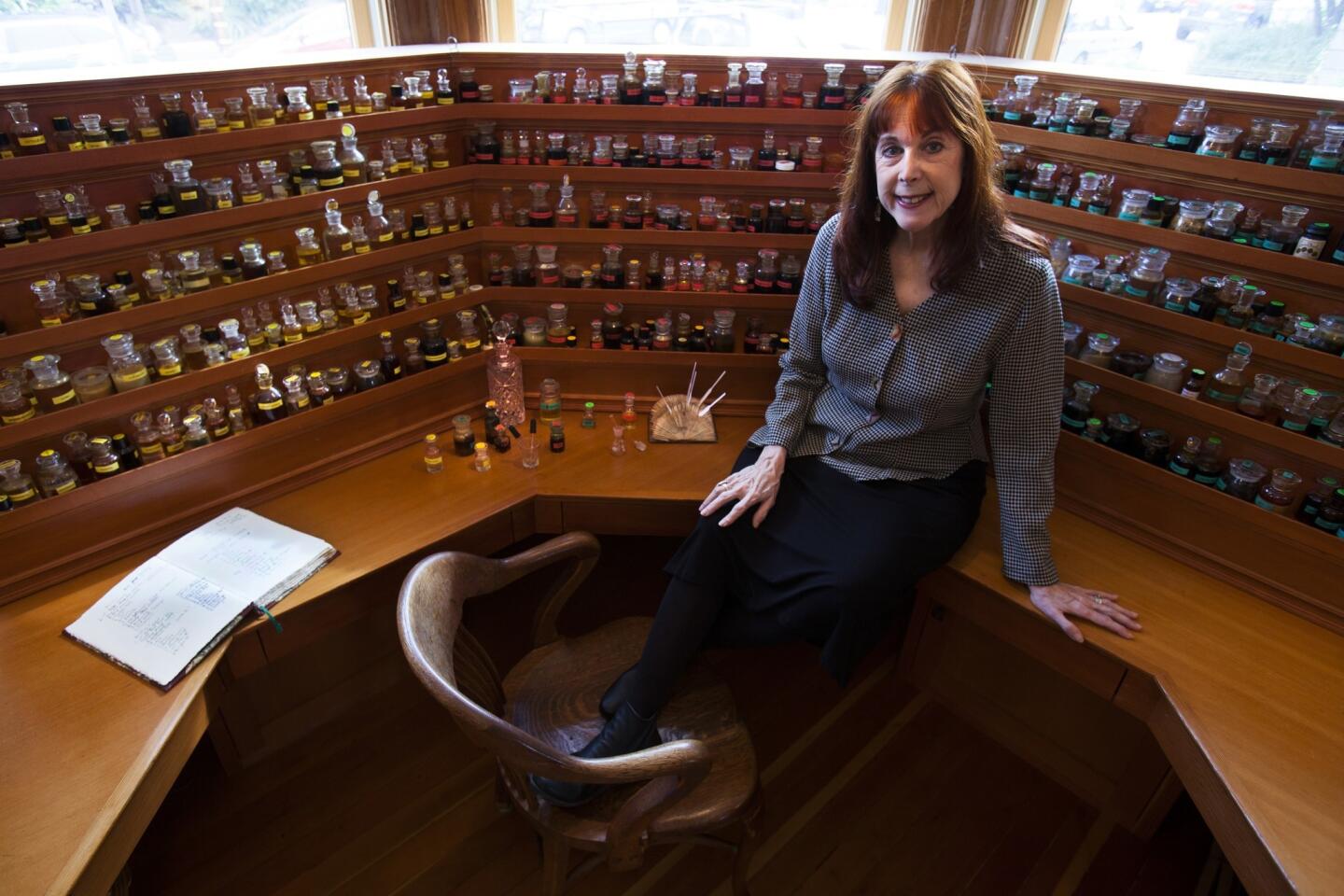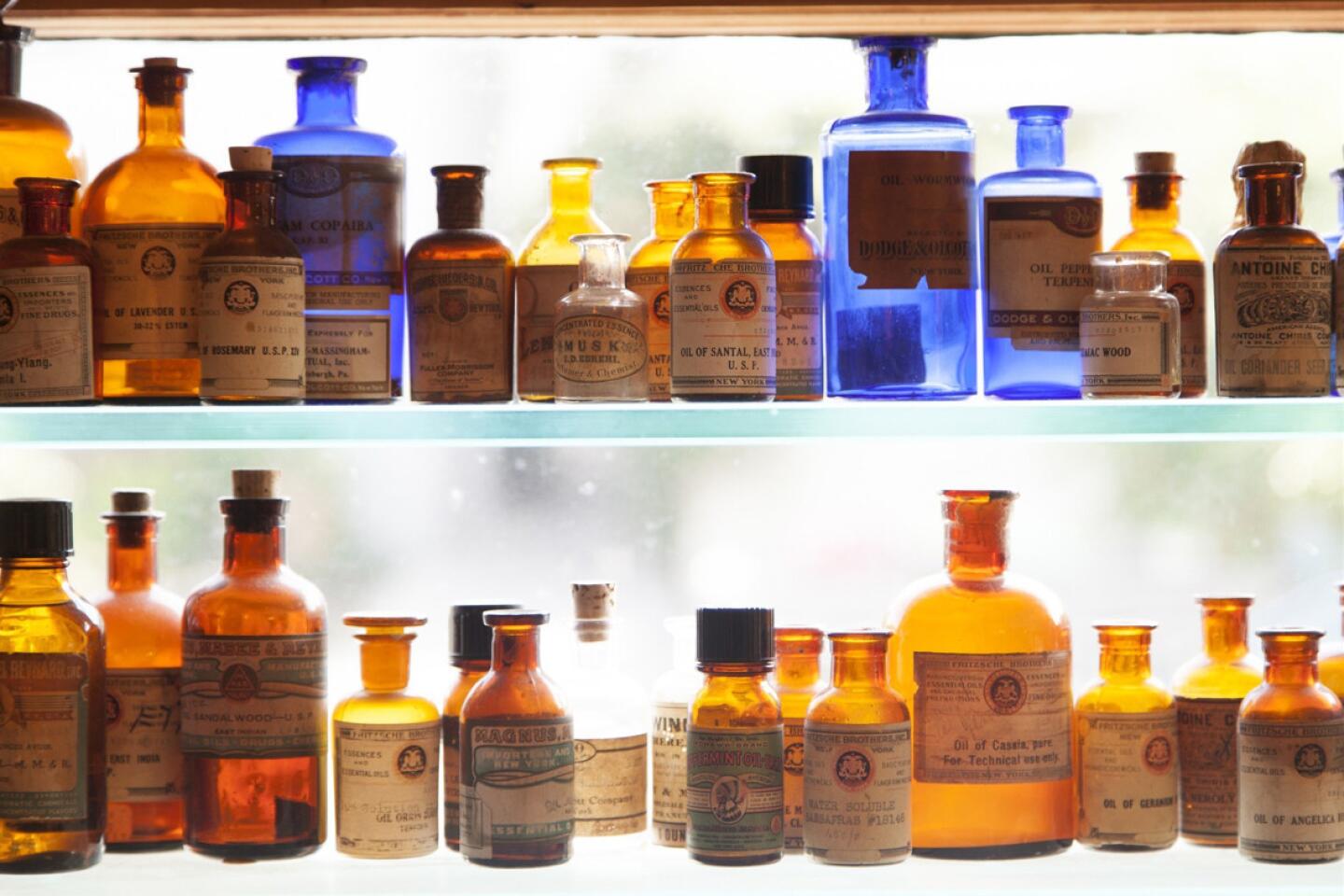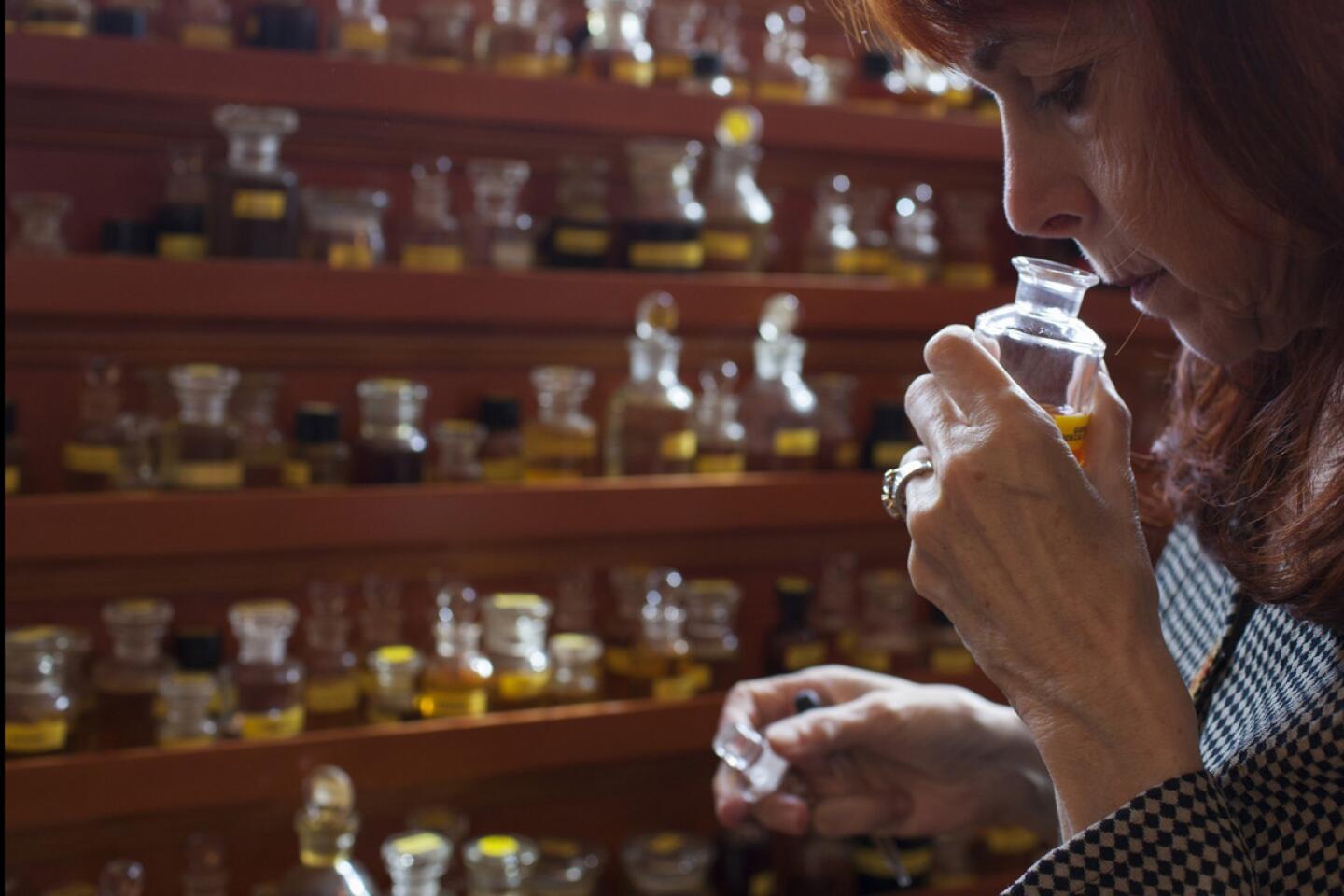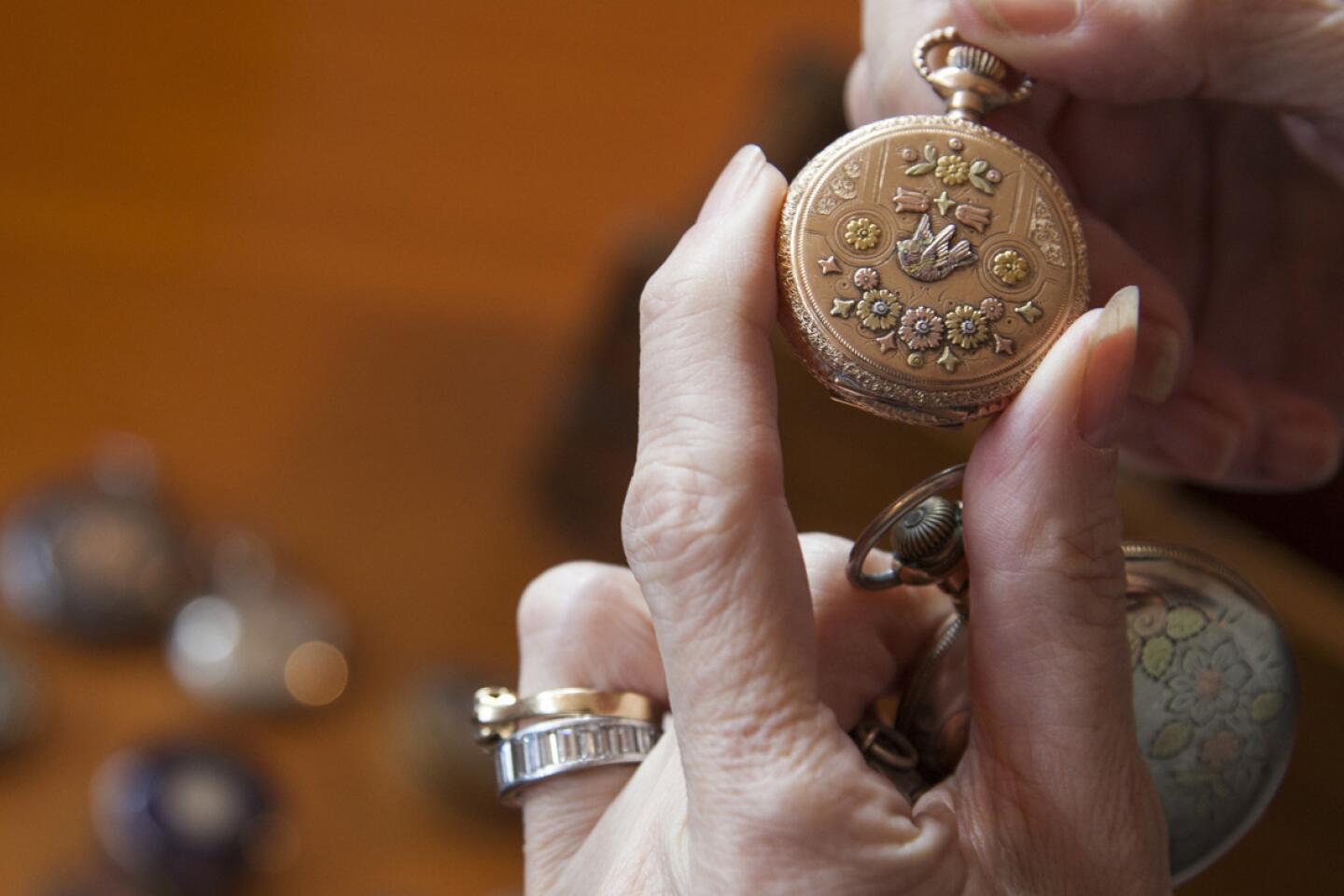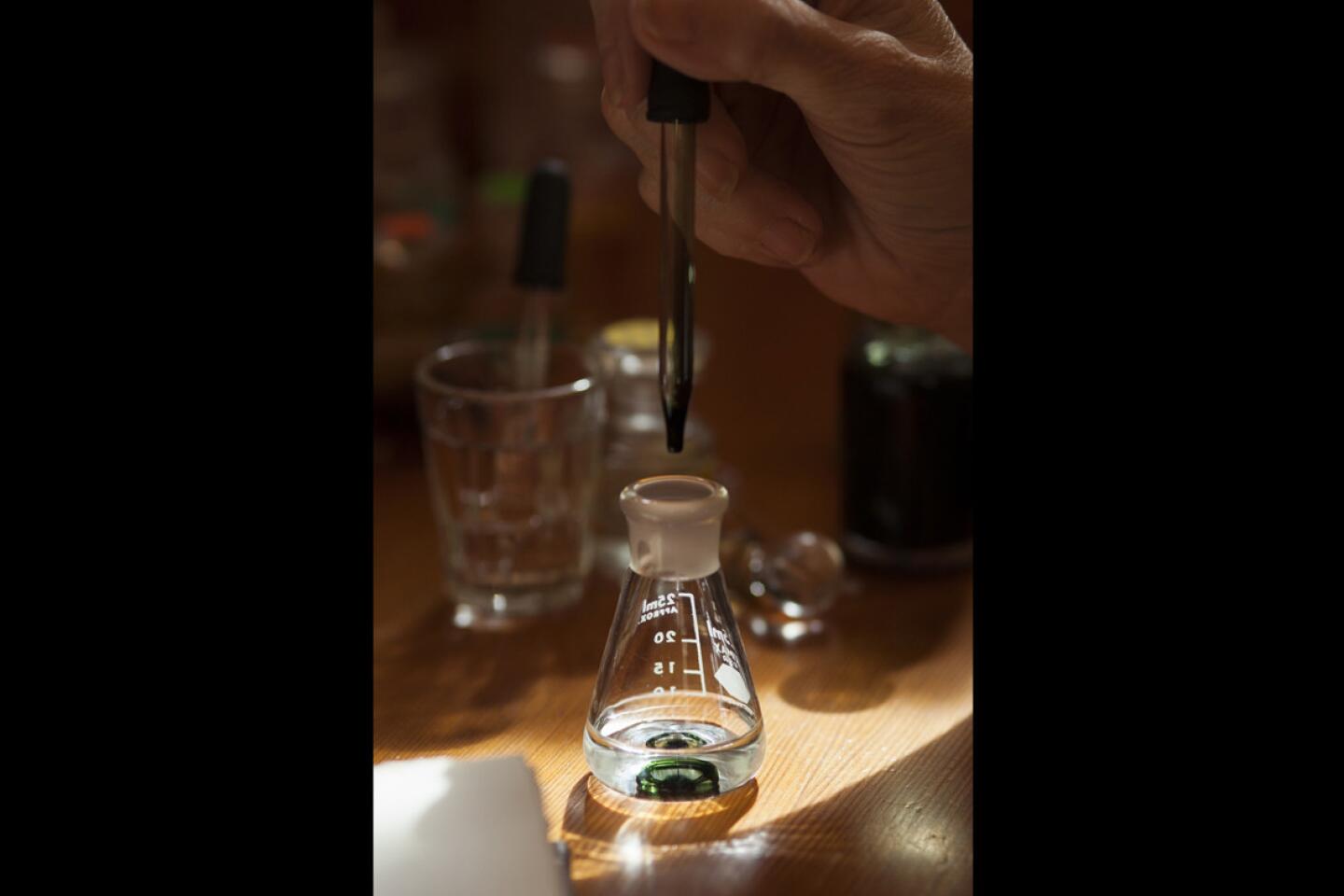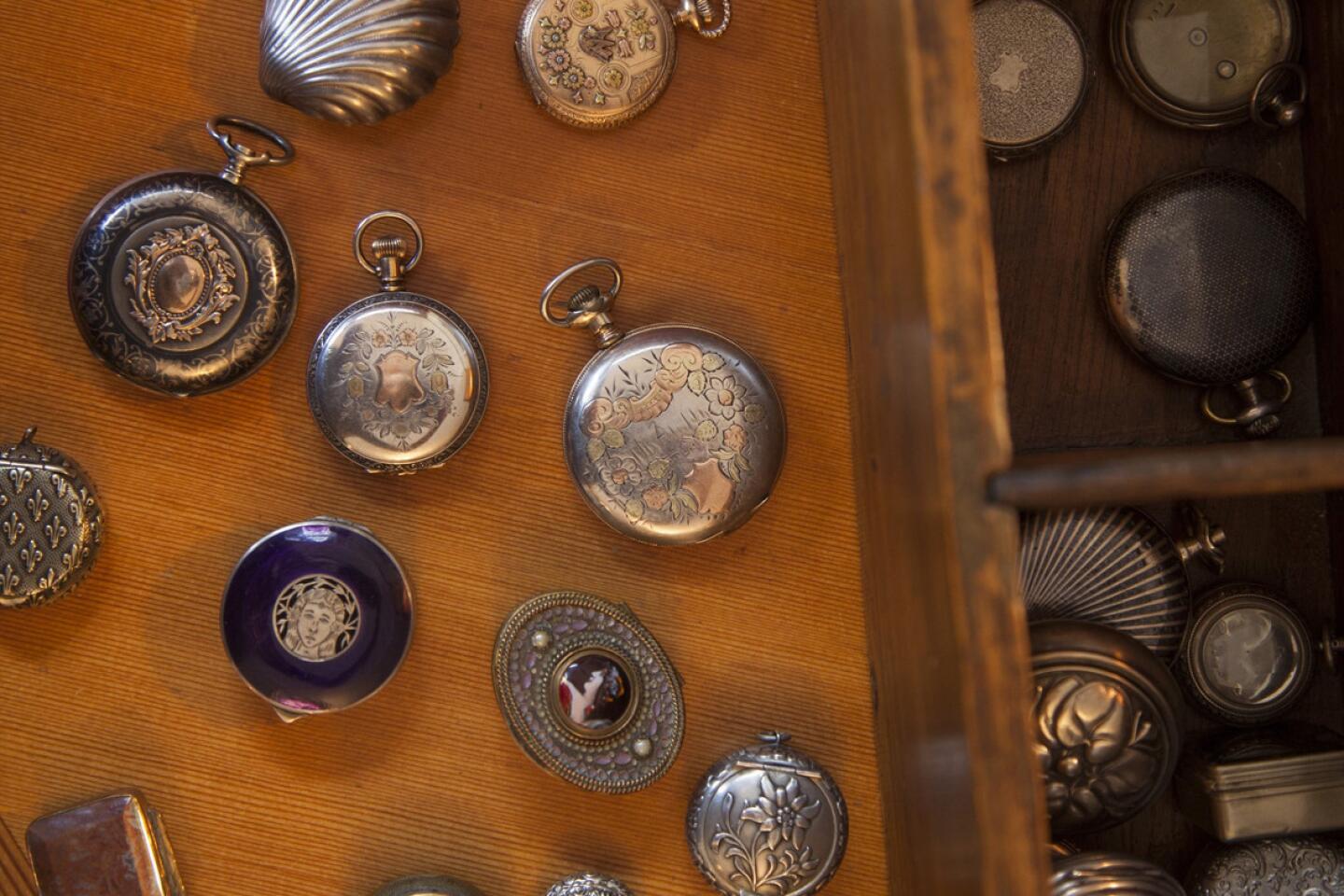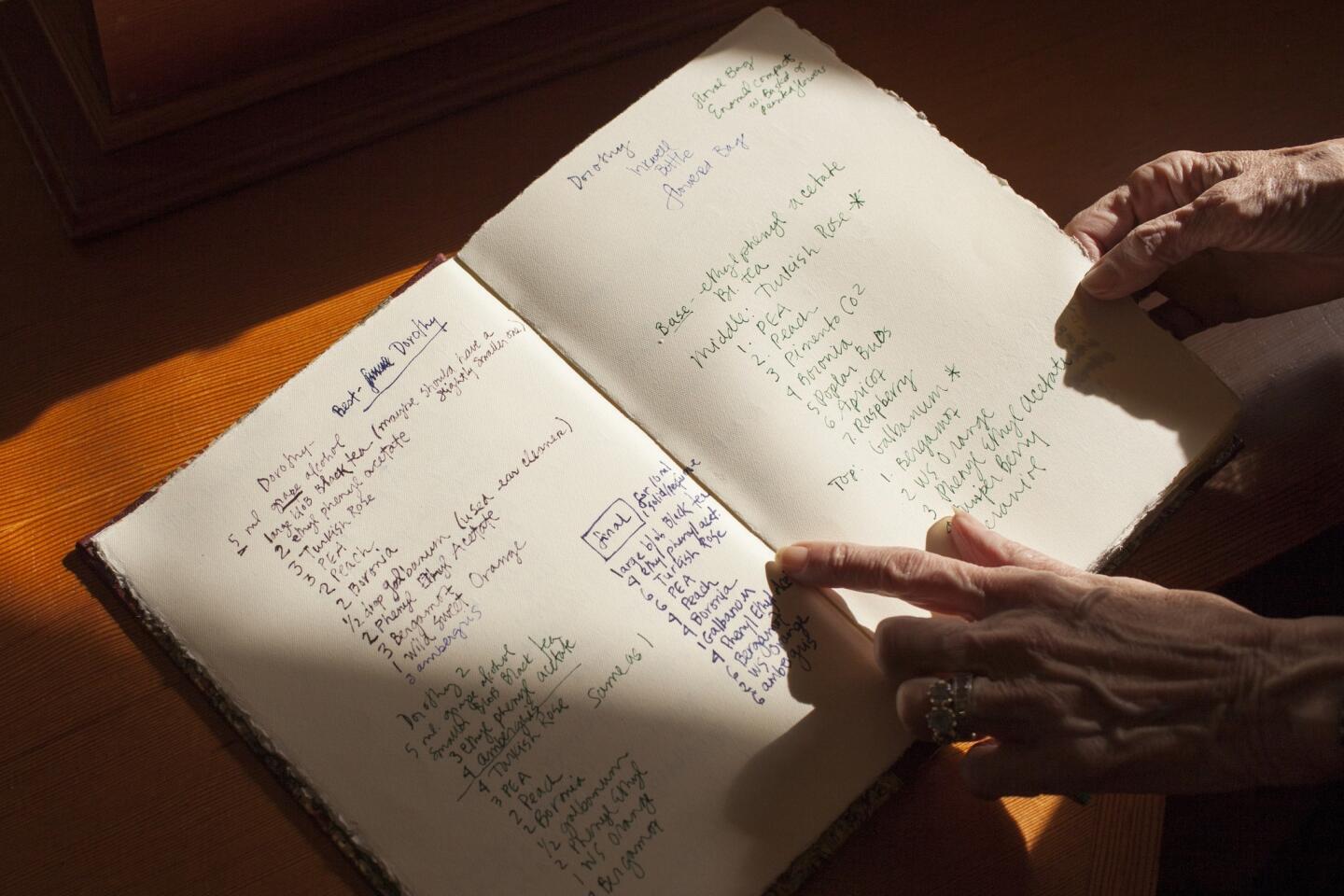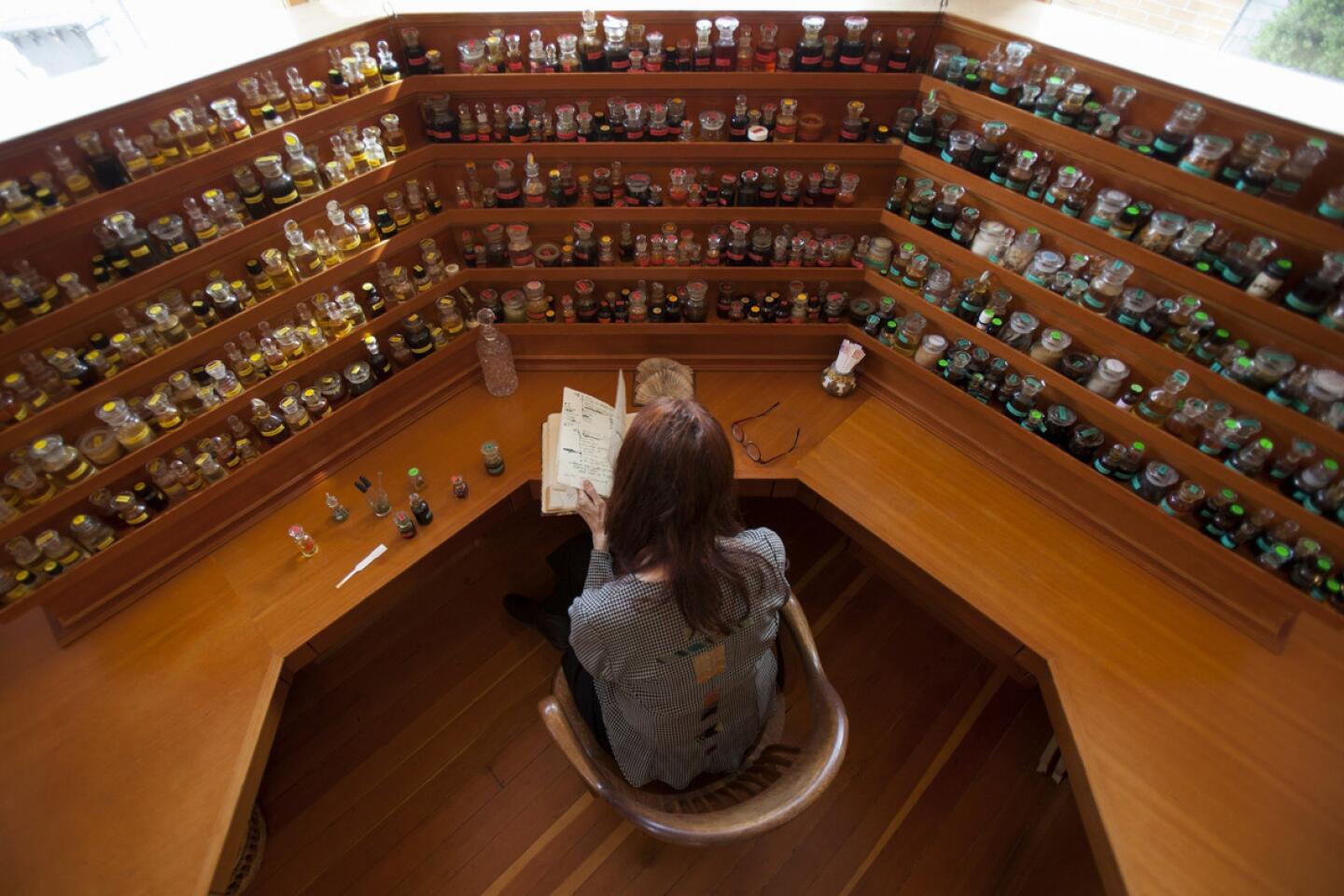History, memories and emotion waft through Mandy Aftel’s ‘Fragrant’
- Share via
Perfume is both sacred and sensuous to the author and artisan who writes passionately about our emotional connection with scent and its powers of transcendence,
From a fragrant atelier in Berkeley, Mandy Aftel creates small-batch, artisanal perfumes and thinks deeply about humanity’s primal connections with scent.
Like her Berkeley friend and neighbor Alice Waters, who believes in sourcing the best natural food ingredients, Aftel has long preached the gospel of natural perfumery and teaches workshops in which participants learn about essential oils and design their own perfumes.
Aftel sells her fragrances with names such as Palimpsest and Lumiere at aftelier.com, and now in her new book, “Fragrant: The Secret Life of Scent,” she shares her passion and scholarly expertise with readers, describing her meticulous research into ancient resins and Renaissance recipes and her world travels to source ambergris, incense and rose oil.
Her wish: to enlighten readers about fragrance and help them become discerning, educated consumers and, maybe, even artisans. “I hope people will discover a more understated perfume experience that doesn’t reach out and touch everybody in sight,” Aftel says. “I think we can borrow a leaf from the locavore and Slow Food movements.”
Aftel, 66, says her first scent memory was the smell of autumn in her home state of Michigan, where almost overnight, “the air smells crisp, of pears and apples and the crunch of dead leaves underfoot.”
She earned a bachelor’s degree in English and psychology and a master’s in counseling from the University of Michigan and later moved to the Bay Area, where she studied textile design at the California College of the Arts in Oakland and worked as a therapist. At one point, she took a class in perfumery and was hooked; soon she was experimenting with essential oils, researching the origins of perfume in the ancient world and tracking down rare materials.
For Aftel, perfume is both sacred and sensuous, an art that dates to antiquity but is still evolving. She writes passionately about our emotional connection with scent, its powers of transcendence and her mission to create perfumes that are the antithesis of overly chemical, mass-produced fragrances.
“Fragrant” traces the history of fragrance while devoting chapters to cinnamon, mint, frankincense, ambergris and jasmine. Aftel takes an inter-disciplinary approach, deftly weaving in the Bible (the scent-drenched Song of Solomon), historic remedies (how to make 19th century Vienna Bitters) lepidoptera (male butterflies exude heliotrope and freesia scents to attract females) linguistics (the Sanskrit origins of the word “musk”), literature (Charles Darwin waxing rhapsodic about jasmine), history (the spice route) and science (how frankincense may relieve depression). Aftel also explains how to reboot our sense of smell (by closing our eyes, smelling a single ingredient, such as mint, cinnamon and orange peel, and considering the images, feelings and memories it evokes). There are recipes for perfumes and a guide to suppliers.
“My book is for anyone who values and enjoys beauty,” Aftel says. “People who’ve never made perfume can begin experimenting; people who already create scent can get deeper into it; the general public can wake up to aroma and the wonderful ways of using scent in fragrance and cooking.”
Aftel has written six previous books, including a biography of Rolling Stone Brian Jones and a cookbook with acclaimed Bay Area chef Daniel Patterson of Coi that explores the use of essential oils in cuisine. But it was her 2001 book, “Essence and Alchemy,” that put her on the perfume map, laid out her DIY philosophy and served as an inspiration for an entire generation of independent perfumers.
“That book changed my life,” says Swiss perfumer Andy Tauer, who abandoned a career as a chemist to launch his well-regarded eponymous line of perfumes.
Aftel has also designed perfumes for celebrities such as Leonard Cohen and Lucinda Williams and collaborated with noted chefs to create “scented dinners” at restaurants like Coi in San Francisco and Alma in Los Angeles.
She takes the long view about perfumery. “Long ago, before there were perfume houses and multinational conglomerates, were little perfumeries and apothecaries. Now, thanks to the Internet, it’s become possible to return to those roots. The revival of artisanship has created a parallel revival in connoisseurship as makers connect directly with increasingly sophisticated customers.”
